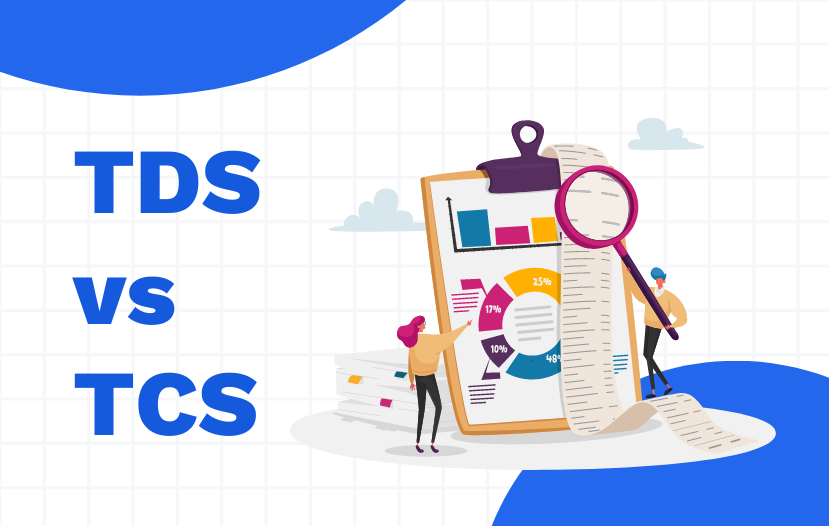TDS vs TCS 😵💫: What’s the difference🧐?
Taxes are an integral part of our financial planning. You must strategically plan to purchase life insurance, a term plan, or any other tax-saving investment, and these help in saving tax as well. You must also maintain track of your earnings and assets.
The government collects taxes from a variety of sources, not just income tax. By imposing them on the purchase of products, services, and transactions, it also obtains indirect taxes from us, such as TDS, TCS, and GST.
We often get confused between TDS and TCS. Let us understand the difference.
What is TDS?
Tax Deducted (or withheld) at Source is referred to as TDS.
In a TDS transaction, the party withholding TDS from the payment is referred to as the deductor, and the party receiving the payment is referred to as the deductee.
A Deductor, on the other hand, is a person or an organization that deducts tax from the deductee. For example, an employer (the deductor) pays a salary to his employee (the deductee).
According to Section 194Q, the income tax division requires any business or person to withhold tax at the source from payments made for the purchase of goods and services, such as rent, consultation, legal fees, royalties, technical services, etc., that exceed Rs. 50 lakhs.
TDS may range from 1% - 3% of the actual payable limit and it is deducted as a percentage of the overall income.
What is TCS?
TCS is an extra amount collected as tax by a seller of specified goods from the buyer at the time of sale over and above the sale amount and is remitted to the government account.
The goods and services that are covered by TCS are listed in Section 206C of the Income Tax Act of 1961. TCS has a threshold of Rs. 50 lakhs for the selling of commodities.
Both TDS & TCS are imposed at the source of the revenue or payment, but there are several noteworthy distinctions between TDS and TCS.
Both tax obligations—tax collected at source and tax deducted at source—are made at the place of income generation
TCS VS TDS
If TDS/TCS is not timely paid deducted, it will attract fines or penalties.
Penalties for Failure to Comply:
Section 271 H will get attracted if the deductor/collector fails to submit their TDS/TCS returns on time and accurately. If a TDS/TCS return is filed incorrectly, the defaulter would be liable to pay a minimum of Rs.10,000 ,however, the maximum penalty amount may extend to Rs.100,000.
Additionally, as per Section 201 clause(1A), if any person who is liable to deduct tax at source does not deduct it or after so deducting fails to pay, the whole or any part of the tax to the credit of the Government, then, such person, shall be liable to pay simple interest as-
Interest shall be levied at 1% for every month or part of a month on the amount of such tax from the date on which it was deductible, till the date on which such tax was deducted.
Interest shall be levied at 1.5% for every month or part of a month on the amount of such tax from the date on which such tax was deducted to the date on which such tax was actually remitted to the credit of the Government.
Be careful about the deduction and filing of TDS & TCS returns.





